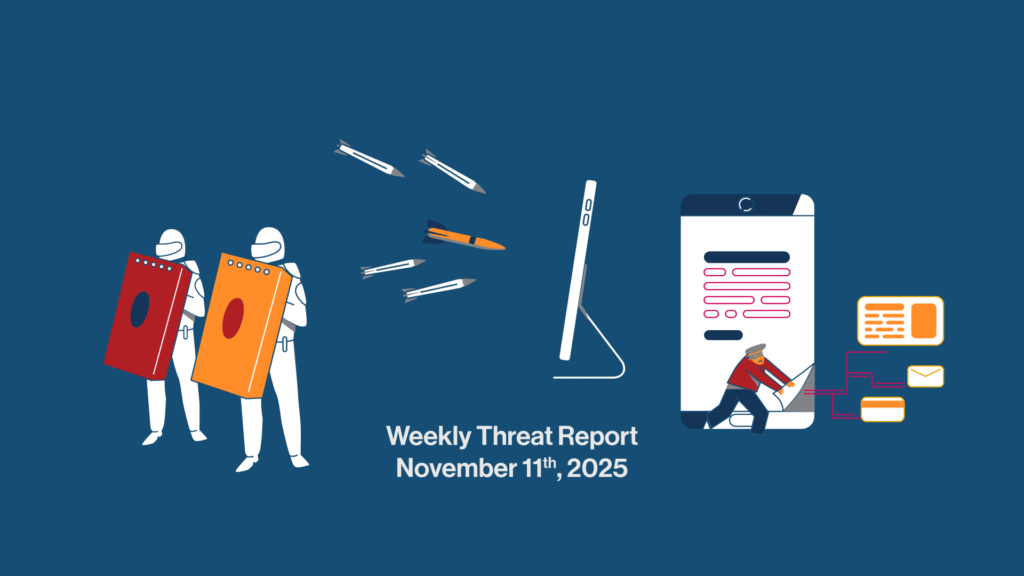Across industries, from higher education to healthcare and global tech, cybersecurity incidents this week highlight a critical lesson: organizations often overlook foundational risks. A mismanaged vendor handoff exposed hundreds of thousands of sensitive files, while new research revealed the financial and operational impact of healthcare cyber incidents. Even Google emphasized that security leaders should focus on essential controls rather than chasing hype, underscoring the importance of robust vendor risk management practices.
Vendor Transition Breach Highlights Critical Gaps in Vendor Risk Management
A significant breach at the University of St. Thomas illustrates the risks inherent in vendor transitions. Shortly after switching to a new IT service provider, despite internal warnings about security weaknesses, over 630,000 sensitive employee and student records were leaked online.
This incident exposes a persistent gap in how organizations handle vendor lifecycle risks. While many companies conduct thorough vendor onboarding assessments, far fewer maintain the same level of scrutiny during offboarding or transition phases.
Key Facts:
- Over 630,000 sensitive records were compromised after a vendor change.
- Internal staff raised early concerns about the provider’s weak security controls.
- Demonstrates the dangers of vendor transitions without risk reassessment
Mitigation Guidance:
Organizations should treat all vendor transitions as high-risk events. Best practices include:
- Conducting pre-handover security audits.
- Enforcing strict credential and data access reviews.
- Continuously monitoring for anomalies during the 60–90 days following a transition.
Integrating vendor offboarding steps into incident response and change-management frameworks to ensure accountability and traceability.
By implementing these measures, organizations can strengthen their vendor risk management processes and reduce the likelihood of similar breaches.
For more insights on strengthening vendor oversight, read RSI Security’s guide: Third-Party Risk Management Services.
Click here to view how to Strengthen your vendor risk program
Cyberattacks Threaten Healthcare Operations and Highlight Vendor Risk Management Needs
A joint EY–Klas Research study reveals that cyberattacks are causing significant financial and operational consequences across the healthcare sector. Over 70% of organizations reported moderate to severe financial losses from cyber incidents, while nearly 60% experienced disruptions to clinical operations, delaying treatments, exposing sensitive data, and even impacting patient safety.
These findings emphasize that healthcare cybersecurity has moved beyond simple compliance. Protecting electronic health records is critical, but organizations must also safeguard continuity of care, which increasingly depends on secure third-party vendors and services.
Key Facts:
- Over 70% of healthcare organizations report severe financial impacts from cyber incidents.
- Nearly 60% cite operational or clinical disruptions linked to cyber events.
- Ransomware and data breaches remain the primary causes of downtime.
Mitigation Guidance:
Healthcare organizations should integrate compliance with resilience strategies, emphasizing vendor risk management:
- Regularly back up critical systems and data.
- Segment medical and administrative networks.
- Establish redundant communications for uninterrupted patient care.
Ensure incident response plans include coordination with vendors, and run joint IT and clinical drills to prepare for cyber emergencies.
By incorporating vendor risk management into security and operational planning, healthcare organizations can reduce both financial and patient care risks from cyberattacks.
For more on building cyber resilience in healthcare, see RSI Security’s article: HIPAA Compliance Services.
Click here to Explore healthcare cybersecurity solutions
Google Emphasizes Cyber Hygiene and Vendor Risk Management Amid AI Hype
As AI-driven threats gain attention, Google’s Threat Analysis Group reminds organizations that most breaches still result from unpatched systems, misconfigurations, and weak credentials, not advanced AI attacks.
Analysts warn that while artificial intelligence introduces new challenges, many organizations are neglecting fundamental security practices like access management, patch cycles, and least-privilege enforcement. The biggest cybersecurity gains often come from mastering these basics, and from strong vendor risk management practices that ensure third-party services do not introduce vulnerabilities.
Key Facts:
- Most breaches originate from known misconfigurations and weak controls.
- Common attack vectors include phishing, unpatched vulnerabilities, and privilege misuse.
- Google emphasizes prioritizing cyber hygiene over chasing AI defense hype.
Mitigation Guidance:
Security teams should reinforce foundational practices and vendor oversight:
- Maintain up-to-date patching across all assets.
- Monitor for privilege creep and enforce organization-wide MFA.
- Conduct regular control testing, vulnerability scanning, and staff awareness training focused on real-world tactics.
Evaluate third-party vendors for compliance with baseline security standards to prevent external risk exposure.
Strengthening these fundamentals, and integrating vendor risk management into security programs, ensures organizations are resilient against both current and emerging threats.
For tactical advice on strengthening baseline defenses, explore RSI Security’s Threat & Vulnerability Management Services.
What Today’s Cyber Incidents Teach About Vendor Risk Management and Security Fundamentals
Recent cybersecurity events demonstrate that failures rarely stem from novel or exotic threats. Instead, they often arise from process gaps, limited resources, and overreliance on technology.
Vendor transitions, healthcare operations, and cloud configurations highlight how attackers exploit overlooked fundamentals. Organizations that prioritize continuous improvement, verify controls during every operational change, and maintain a culture of accountability can significantly reduce exposure, without waiting for the next new tool.
Strengthening vendor risk management practices is critical in this process. By assessing third-party providers, enforcing compliance checks, and integrating vendor oversight into operational changes, companies can protect sensitive data, maintain service continuity, and reduce risk across the organization.
Contact RSI Security today to evaluate your cybersecurity fundamentals and ensure your defenses, including vendor risk management programs, evolve faster than emerging threats.
Download Our Cybersecurity Checklist
